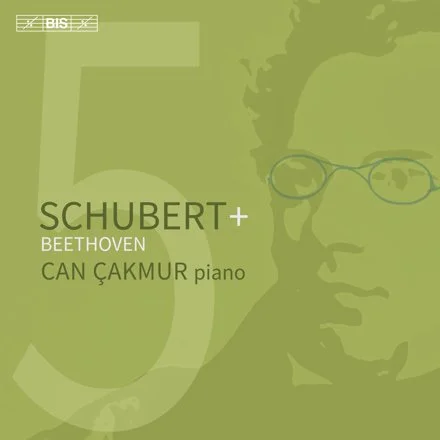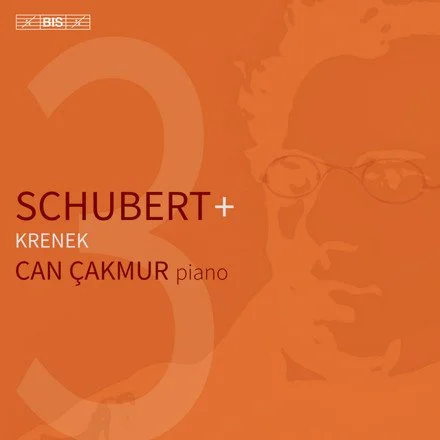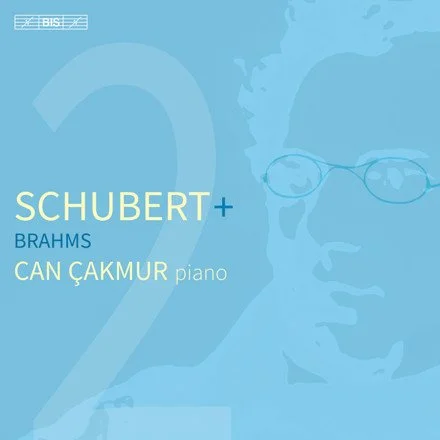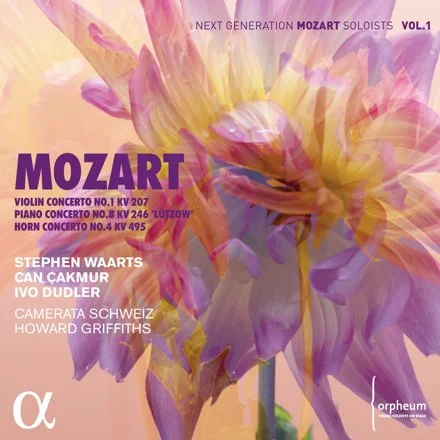-

Schubert + Beethoven
For the fifth instalment of the critically acclaimed Schubert+ series, Can Cakmur juxtaposes the Viennese composer with his illustrious elder Ludwig van Beethoven, for the first time in this series.
-

Schubert + Voříšek, Chopin, Scriabin
For the fourth instalment of his Schubert+ series, Can Çakmur focuses on the genre of the impromptu, aiming to identify historical predecessors for Schubert’s piano writing as well as gain an insight into the evolution of free-standing poetic keyboard compositions.
-

Schubert + Krenek
The third installment features not only a work by 20th-century composer Ernst Krenek but also Krenek's completion of a Schubert sonata that was left unfinished. Krenek's deep understanding of Schubert's style is evident, making it hard to distinguish between the compositions of the two composers.
-

Schubert + Brahms
In this second instalment, Çakmur performs pieces published after Schubert’s death, the three Klavierstücke, D 946. Since their first editor was Brahms, it seemed logical to include the Vier Klavierstücke, Op. 119. The pieces by Schubert and Brahms share a spontaneity, even an apparent lightness, that often conceals an unsuspected depth beneath the surface. The programme concludes with the Four Impromptus, D 935, an ambitious cycle also published after Schubert’s death.
-

Schubert + Schoenberg
Three years after recording Franz Schubert’s Schwanengesang (arranged by Liszt), pianist Can Çakmur launches a new series called Schubert+. Describing the Viennese composer as “a constant companion” in his life, Çakmur’s aim here is to juxtapose his complete major piano solo compositions with works by other composers that were inspired by his music, thus providing the opportunity to see these works in a new light.
-

Without Borders
For this recital disc, Can Çakmur has devised a programme which juxtaposes four composers’ different responses to folk music. Bartók’s Piano Sonata is followed by Passacaglia, Intermezzo e Fuga with which Dimitri Mitropoulos made a clean break with earlier works in a more nationalistic vein. Next comes Çakmur’s compatriot, the Turkish composer Ahmed Adnan Saygun, who in 1936 accompanied Bartók on a field trip in Turkey collecting music. His Piano Sonata was composed some fifty years later, however, and refers to folk music primarily on a theoretical level. Closing the disc is George Enescu’s Piano Sonata No. 3 in D major, which Çakmur in his own liner notes describes as ‘radiating a natural affinity for the village, without sacrificing the compositional value of the work.’
-

Next Generation Mozart Soloists Vol. 1
The Orpheum Foundation, which has been supporting young musicians for more than thirty years, has joined forces with Alpha Classics for a complete series of recordings devoted to Mozart's solo concertos.
-

Liszt/Schubert Schwanengesang
Franz Liszt’s arrangement of Schubert’s Schwanengesang is very much his own work: while it very clearly retains the musical meaning of the original it also provides a vision of Liszt’s understanding of what lies beyond the black dots on paper. In the young Turkish pianist Can Çakmur’s words, Liszt’s ‘songs without words’ are ‘striking, horrifying, grand, intimate, full of life and yet often as pale as death. The marvel of what a single instrument can attain plays an integral role in all these pieces.
-

Debut Piano Recital
On the 3rd January 2019, only a few weeks after winning the 10th Hamamatsu International Piano Competition, Can Çakmur returned to the ACT CITY Concert Hall in Hamamatsu in order to record his début disc. Can’s chosen programme reflects his wide-ranging musical interests – from Haydn’s late F-minor set of variations and Schubert’s early Sonata in E flat to Sacrifice from 2017, composed by Fuyuhiko Sasaki for the competition. Also included on the disc are Liszt’s transcription of the Beethoven song Adelaide, and Black Earth by Can’s compatriot, the Turkish pianist and composer Fazıl Say.

